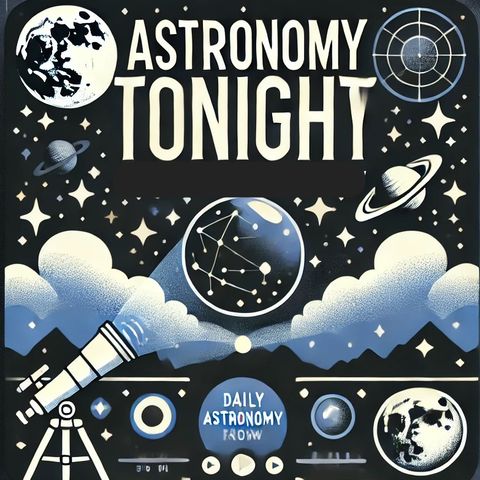Astronomy Tonight for - 09-23-2024

Download and listen anywhere
Download your favorite episodes and enjoy them, wherever you are! Sign up or log in now to access offline listening.
Astronomy Tonight for - 09-23-2024
This is an automatically generated transcript. Please note that complete accuracy is not guaranteed.
Description
On September 23, 1846, Johann Gottfried Galle, a German astronomer, made a remarkable discovery that would forever change our understanding of the solar system. Galle, working at the Berlin Observatory,...
show moreThe story behind this discovery is a fascinating tale of mathematical prowess and scientific collaboration. In the early 1840s, astronomers had noticed peculiarities in the orbit of Uranus, the seventh planet. It seemed to be deviating from its predicted path, leading some to speculate that an unknown celestial body might be influencing its motion.
Enter Urbain Le Verrier, a brilliant French mathematician. Le Verrier took on the challenge of calculating the position of this hypothetical planet. After months of meticulous calculations, he predicted where in the night sky this mysterious world should be found.
On that fateful evening of September 23, 1846, Le Verrier sent his calculations to Galle, urging him to search for the planet. Galle, armed with Le Verrier's predictions and the powerful Berlin Observatory telescope, scanned the heavens. Astonishingly, within just an hour of receiving Le Verrier's letter, Galle spotted a faint star-like object near the predicted location. Further observations confirmed that this was indeed a new planet, later named Neptune after the Roman god of the sea.
The discovery of Neptune was a triumph of mathematical astronomy and a testament to the power of scientific collaboration. It demonstrated that the laws of physics could be used to predict the existence of celestial bodies before they were directly observed.
Interestingly, it was later revealed that Galileo Galilei had unknowingly observed Neptune over two centuries earlier, in 1612 and 1613. However, he had mistaken it for a fixed star due to its slow motion and lack of advanced telescopes at the time.
Today, Neptune remains a fascinating subject of study, with its vibrant blue color, powerful winds, and intriguing moons, such as the bizarre Triton with its cryovolcanoes and nitrogen geysers. As we continue to explore the cosmos, the discovery of Neptune on September 23, 1846, serves as a reminder of the incredible discoveries that await us when we combine scientific curiosity, mathematical prowess, and the spirit of collaboration.
Information
| Author | QP-4 |
| Organization | William Corbin |
| Website | - |
| Tags |
Copyright 2024 - Spreaker Inc. an iHeartMedia Company
